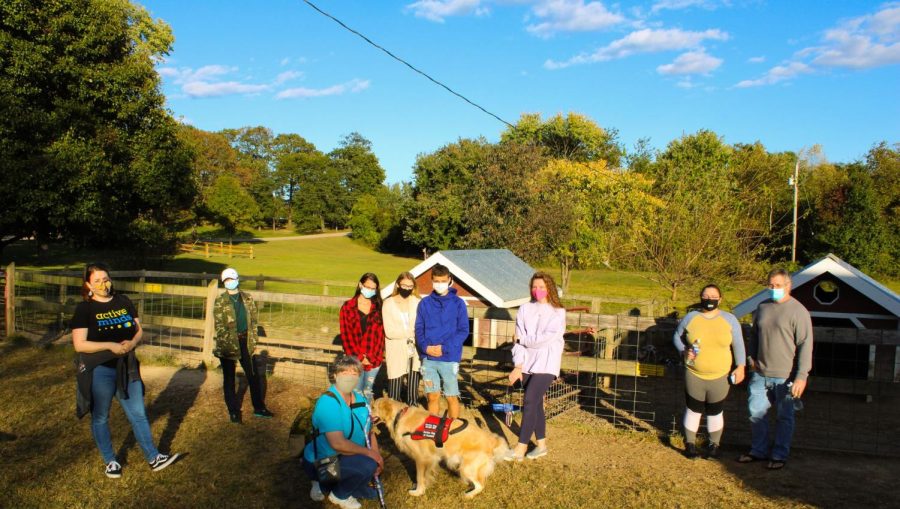Many clubs to start semester with no funding
The Active Minds Club is one of the student organizations that must submit a budget proposal each year.
August 29, 2022
Student clubs will begin the school year without funding for events and trips, unlike in prior years when the Student Government Association approved their budgets in the spring.
Office of Student Engagement officials have told club presidents and faculty advisers that the budget process will be delayed until after the start of the fall semester so incoming club officers can make the decisions about what needs funding.
“What we found was that people who were in clubs this year and would be graduating are no longer participating in clubs [but] were requesting budgets for the people who will be taking over for the next year,” Amberdawn Cheatham, director of student engagement, said.
Funding for campus clubs comes from student activity fees, which all students pay when they enroll in classes.
Budget requests from club officers are due to the Student Government Association by Sept. 23 but the officers of new clubs that form after that date may request funds at any time, Cheatham said. The SGA will hold budget hearings Sept. 26 through Oct. 6.
In previous years, clubs have sent in budget proposals in May or April prior to the fall semester.
Several faculty advisers said they disagree with the changes.
“It’s a little bit of a problem,” Janet Lea Haddock, the faculty adviser for AACC’s National Kitchen and Bath Association chapter. “I know with the ASID group, there is an event called B’More, and that happens in September. So, how do you plan for B’More if your budget closes in the end of June and the event is within a week or so returning to campus? It’s a little challenging.”
Haddock, an instructional specialist for architecture and interior design, added: “We used to ask for the budget in the spring and it would be there waiting for us in the fall. But now … [they] want us to submit our budget … when we first get back to campus. … We can’t really plan too much until we know what money we have to work with.”
Cheatham said most clubs may request up to $3,000 rather than an amount that presidents deem would fund their activities for the year, as is traditional. Cheatham also said some clubs may receive less than $3,000 and the SGA will consider requests for more money and for early budget hearings on a case-by-case basis.
“So the idea is to reduce waste,” Cheatham said, “and then also to ensure that we’re being good stewards of the funds for the fees that we collect.”
English professor Garret Brown, a former adviser for the student literary magazine Amaranth, said he fears the $3,000 cap might limit his club’s ability to produce the publication.
Former SGA President Ben Nussbaumer, who graduated in May, agreed that limiting club budgets could limit the number of events on campus. “Since there’s less budget … I think just less events that involve bringing in like outside people,” Nussbaumer said.
Brown called on OSE officials to collaborate with club advisers on any new rules.
“Right now, it seems very much like they set the rules, and from the top down, and there’s all this friction, because the rules don’t really work for a lot of the different clubs.”
“There really needs to be thought about what it is that the clubs do, and how we can facilitate their funding and make things easier for them,” Brown said.
Cheatham said the $3,000 cap reflects the spending of a typical student club.
And she noted that clubs may raise money on their own to pay for events or expenses that exceed the amount the SGA approves for them.
A new Student Handbook also outlines other changes in the rules for campus clubs.
For example, clubs may use their SGA-approved funds for no more than two off-campus events or trips per semester. If members want to take additional trips, they may raise money to cover the price or pay for them on their own.
Also, clubs may use their funds to pay for only 75% of off-campus trips, and clubs must fundraise the other 25% or ask members to pay out of their pockets.
The Office of Student Engagement has created a Canvas page that contains modules for virtual training for club officers and faculty advisers, who will not have access to their funding until after they complete the course.












